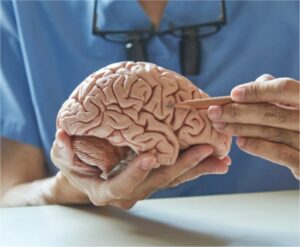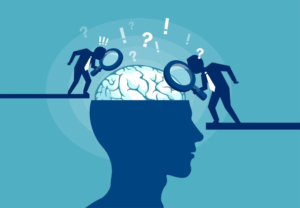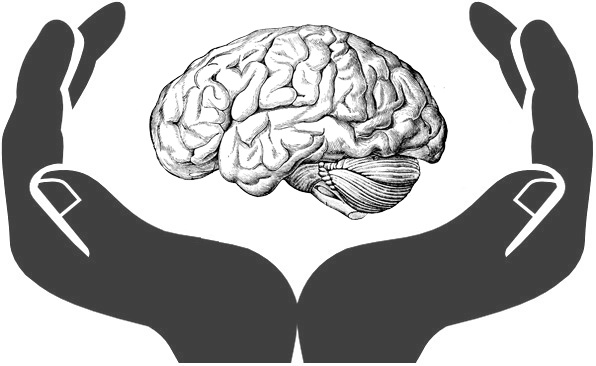If you’re like most people, the mere mention of psychiatry probably conjures up images of straitjackets and padded cells. However, neuropsychiatry is a fascinating field that is constantly evolving. In this blog post, we will discuss what neuropsychiatry is and some of the latest research in the field. We will also explore how neuro psychiatrists help patients with mental health disorders. So if you’re curious about this growing field, keep reading!
Contents
Defining Neuropsychiatry
Neuropsychiatry is a branch of medicine that deals with the diagnosis and treatment of mental disorders. Neuro psychiatrists use a variety of techniques to help their patients, including cognitive behavioural therapy, medication, and electroconvulsive therapy. It is a sub-field of psychiatry rather than psychology as it emphasizes the study of the brain and nervous system.
History of Neuropsychiatry

The field of neuropsychiatry has its roots in the early 19th century. French psychiatrist Jean-Pierre Falret coined the term “folie circulaire” to describe a type of mental illness that caused patients to experience periods of mania and depression. German psychiatrist Emil Kraepelin also made important contributions to the field with his work on manic-depressive illness and dementia praecox (now known as schizophrenia). In the early 20th century, Austrian psychiatrist Sigmund Freud developed psychoanalysis, which would go on to become one of the most influential theories in all of psychiatry.
It has also been of great interest to neurologists and neurosurgeons, who have long been intrigued by the link between mental illness and brain damage. In fact, some of the earliest treatments for mental illness were actually surgical procedures. For example, in the late 19th century, psychiatrist Gottlieb Burkhardt performed a procedure called a frontal leucotomy, which involved cutting the connections between the frontal lobe and other parts of the brain.
While these early treatments may seem barbaric by today’s standards, they paved the way for important advancements in our understanding of mental illness. In recent years, there has been a renewed interest in neuropsychiatry as researchers have begun to unlock the mysteries of the brain.
Recent Developments
Today, neuropsychiatry has evolved into a highly interdisciplinary field. Researchers in neuropsychiatry are using cutting-edge technology to better understand the brain and develop new treatments for mental disorders. One of the most exciting recent developments is the use of brain-computer interfaces (BCIs). BCIs are devices that allow communication between the brain and an external computer.
There are a few different types of BCIs, but one of the most promising is the transcranial direct current stimulation (tDCS). tDCS is a non-invasive form of brain stimulation that uses electrical currents to stimulate specific areas of the brain. Research suggests that tDCS can help to treat a variety of mental disorders, including depression, schizophrenia, and Alzheimer’s disease.
Another exciting development in neuropsychiatry is the use of virtual reality (VR). VR technology is being used to create immersive environments that can be used for exposure therapy. Exposure therapy is a type of cognitive behavioral therapy that helps patients confront their fears and learn to manage their anxiety. VR allows patients to face their fears in a safe and controlled environment. Studies have shown that VR exposure therapy can be an effective treatment for conditions such as post-traumatic stress disorder (PTSD) and phobias.
In recent years, there has been an explosion of research in the field of neuropsychiatry. Scientists are now able to use sophisticated imaging techniques to study the brain in unprecedented detail. This has also led to a greater understanding of how mental illness develops and how it can be treated.
For example, researchers have discovered that people with schizophrenia often have abnormalities in the structure and function of their brains. This has led to the development of new treatments that target these specific abnormalities. In addition, researchers are beginning to identify genetic markers for mental illness, which could one day lead to more personalized treatment plans.
Neuropsychiatry And Mental Health

As we have already read above, neuropsychiatry is a field of medicine that deals with the relationship between mental health and the brain. In this section, we will take a closer look at some of the most common mental disorders that are linked to abnormalities in the brain.
Depression
Depression is a mental disorder that is characterized by persistent feelings of sadness, anxiety, and worthlessness. It affects people of all ages and can lead to a variety of different problems. Researchers believe that depression is caused by an imbalance in the levels of certain chemicals in the brain. These chemicals are known as neurotransmitters. Neurotransmitters are responsible for transmitting messages between nerve cells in the brain.
Serotonin is one of the most important neurotransmitters for mental health. Low levels of serotonin have a linking to a number of different mental disorders, including depression, anxiety, and schizophrenia.
Alzheimer’s Disease
Alzheimer’s disease is a degenerative neurological disorder that affects memory, thinking, and behavior. This disease is the most common form of dementia, and it is currently incurable.
This disease characterizes by the buildup of abnormal proteins in the brain. These proteins, known as amyloid plaques and tau tangles, damage nerve cells and cause them to die. The death of nerve cells leads to a decline in cognitive function. Alzheimer’s patients often experience memory loss, confusion, as well as difficulty in communicating.
Schizophrenia
Schizophrenia is a mental disorder that affects a person’s ability to think clearly, manage emotions, and make decisions. It is a chronic condition that can be debilitating. People with schizophrenia often experience hallucinations, delusions, and disordered thinking.
Researchers believe that schizophrenia happens because of the abnormalities in the structure and function of the brain. Specifically, it is thought that there is an imbalance in the levels of certain neurotransmitters, including dopamine and serotonin. It also appears that there may be a genetic component to schizophrenia. People with a family history of the disorder are more likely to develop it themselves.
While other disorders also have an effect on the mental state of a person, we can see that there is a clear connection between neuropsychiatry and mental health. By understanding the relationship between the brain and mental illness, we can develop better treatments and improve the lives of those affected by these disorders.
What Do Neuropsychiatrists Do?

Neuropsychiatrists are medical doctors who specialize in the diagnosis and treatment of mental disorders that are caused by abnormalities in the brain. Neuropsychiatrists use a variety of different techniques to diagnose as well as treat their patients. Some of the most essential things they do include:
Conducting tests and exams
Neurology is highly complex, and it is important for neuropsychiatrists to have a thorough understanding of the brain as well as its working. They use this knowledge to conduct tests as well as exams that can help them diagnose their patients.
Some of the most common tests used by neuropsychiatrists include:
- CT scans
- MRI scans
- EEG tests
- Psychological tests
Neuropsychiatrists, in addition to conducting these tests, also use them to track the progress of their patients. By monitoring the changes in the brain, they can adjust their treatment plans accordingly.
Treating brain injuries
Brain injuries are a common cause of mental disorders. Neuropsychiatrists treat patients who have sustained brain injuries by helping them to rehabilitate and recover from their injuries. Their work is closely linked to that of neurologists. They also specialize in the treatment of brain injuries. Some of the most common instances of brain injuries that neuropsychiatrists treat include:
- Concussions
- Strokes
- Traumatic brain injuries
They work with their patients to help them regain as much function as possible. In some cases, this may involve providing rehabilitation services. In other cases, it may also involve medication or surgery.
Performing brain surgery
In some cases, neuropsychiatrists may perform brain surgery on their patients. This type of surgery is usually only performed when other treatments have failed and the patient’s condition is severe. Brain surgery can help to treat a number of different conditions, including tumors, epilepsy, and Parkinson’s disease. This procedure is usually only a last resort in severe cases.
This procedure is carried out under general anesthesia, and it carries a risk of complications. These risks are usually outweighed by the potential benefits of the surgery, however.
Providing counseling and therapy
Neuropsychiatrists often provide counseling and therapy to their patients. Many mental disorders can be effectively treated with therapy. Neuropsychiatrists often provide therapy to their patients in order to help them manage their symptoms and improve their overall quality of life. Therapy can be an important part of treatment for many different mental disorders, including:
- Depression
- Anxiety
- Schizophrenia
- Bipolar disorder
Therapy can take many different forms, and neuropsychiatrists often work with their patients to determine the best type of therapy for their needs. Some common types of therapy used by neuropsychiatrists include approaches such as:
- Cognitive behavioral therapy
- Interpersonal therapy
- Group therapy
- Family therapy
Neuropsychiatrists play an important role in the treatment of mental disorders. By understanding the relationship between the brain and mental illness, they can develop better treatments and improve the lives of those affected by these disorders.
Prescribing medication
Medication can be an effective treatment for many mental disorders. Neuropsychiatrists often prescribe medication to their patients in order to help them manage their symptoms. They assess and understand the risks and benefits of each medication before prescribing it to their patients. Some of the most common types of medication prescribed by neuropsychiatrists include:
- Antidepressants
- Anti-anxiety medications
- Stimulants
- Mood stabilizers
Neuropsychiatrists work with their patients to determine the best course of treatment. In some cases, this may involve a combination of medication as well as therapy. In other cases, it may involve one or the other. The goal of treatment is always to improve the quality of life of the patient.
There is a lot that goes into the fascinating world of neuropsychiatry. If you or someone you know is suffering from a mental disorder, consider seeking help from a neuropsychiatrist.
Finding A Neuropsychiatrist

If you are looking to find a neuropsychiatrist, there are a few things you can do.
- You can start by asking your doctor for a referral. You can also look online or in the phone book. It is important to do thorough research when choosing a neuropsychiatrist.
- After assessing and creating a database, you may reach out to the potential candidates and further schedule a consultation call. This is a brief introduction to see if you can be a good fit for each other.
- During the consultation call, you can ask the following questions:
-How do you treat your patients?
-What is your philosophy on mental health?
-Do you accept insurance?
-What are your qualifications?
-Do you have a license?
-How much experience do you have?
-Have you ever come across patients with similar problems to mine?
- After the consultation call, you can have a fair idea of wether or not the neuropsychiatrist is a good fit for you. If you decide to move forward with treatment, you will likely schedule an appointment for an initial evaluation.
- During the initial evaluation, the neuropsychiatrist will ask questions about your medical history and symptoms. They will also perform a physical examination. After the initial evaluation, the neuropsychiatrist will further develop a treatment plan for you. This treatment plan may include medication, therapy, or both.
While neuropsychiatry is a relatively new field, it has already made great strides in the treatment of mental illness. By better understanding the relationship between the brain and mental illness, neuropsychiatrists are able to further provide better care for their patients. Neuropsychiatrists often work closely with other mental health professionals, such as psychologists and social workers. This interdisciplinary approach is essential for further providing comprehensive care to patients.
Conclusion
Conclusively, it is safe to say that neuropsychiatry is a fascinating world that offers much help to those with mental disorders. If you or someone you know is suffering from a mental disorder, consider seeking help from a neuropsychiatrist. With their understanding of the relationship between the brain and mental illness, they can further develop an effective treatment plan that can improve your quality of life.
There is a lot that goes into the fascinating world of neuropsychiatry. If you or someone you know is suffering from a mental disorder, consider seeking help from a neuropsychiatrist.
For more information, please contact MantraCare. A psychiatrist is a medical doctor who specializes in the diagnosis, treatment, and prevention of mental illnesses and emotional disorders. If you have any queries regarding Online Counseling experienced therapists at MantraCare can help: Book a trial therapy session


